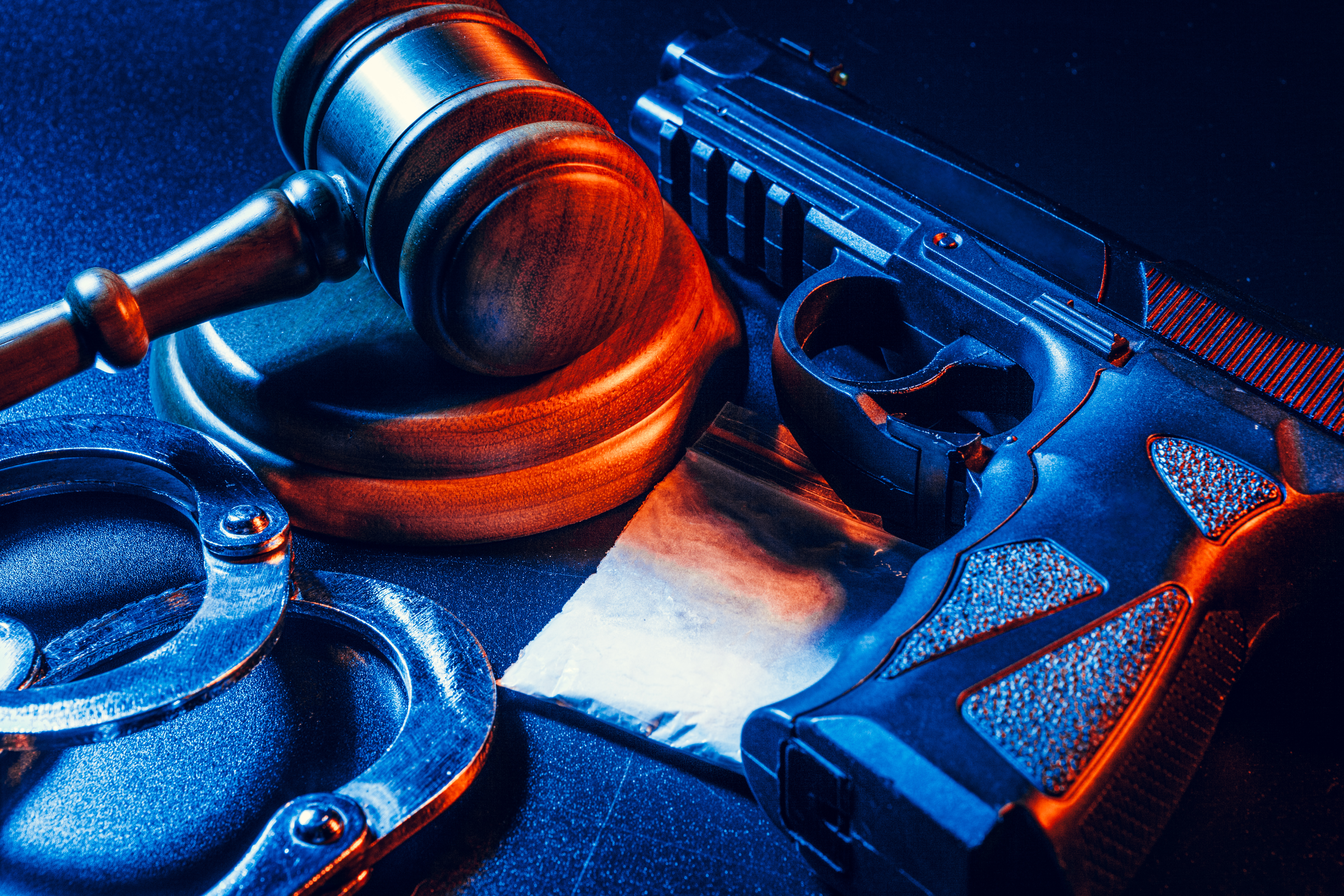Facing drug possession charges in Texas can have severe consequences, including hefty fines and imprisonment. If you find yourself in this situation, it’s crucial to understand your legal rights and explore the available options to defend yourself. In this blog post, we will delve into the concept of entrapment, discuss its definition, and explain how it can serve as an effective defense strategy. Additionally, we’ll highlight the role of a skilled criminal defense lawyer in navigating the complexities of the criminal justice system.
Illegal search and seizure
The Fourth Amendment to the U.S. Constitution and Article I section 9 of the Texas Constitution safeguard individuals from unreasonable searches and seizures. These constitutional protections play a significant role in criminal law, particularly for those facing drug possession charges. If law enforcement officials engage in an illegal search or seizure of your property, any evidence discovered during that unauthorized act cannot be used against you in court. This crucial legal principle ensures that the rights of individuals are respected. For instance, if police officers conduct a search of your vehicle without a warrant or your consent, any drugs found during that search may be deemed inadmissible in court.
The importance of understanding these constitutional safeguards cannot be overstated, which is why consulting with a knowledgeable criminal defense lawyer is essential. A criminal defense lawyer specializes in criminal law and can provide expert guidance throughout your legal proceedings. Whether it involves drug possession charges or any other criminal offense, these legal professionals are well-versed in the intricacies of the criminal justice system. They will thoroughly assess the circumstances surrounding your case and develop a robust defense strategy tailored to your specific situation. By working with a skilled criminal defense lawyer, you can effectively assert your rights as a normally law-abiding person and challenge any potential violations of your constitutional protections, such as an illegal search or seizure.
The exclusionary rule, an essential aspect of criminal law, protects citizens from unreasonable searches and seizures. Under this rule, evidence obtained through an illegal search or seizure is deemed inadmissible in court. The “fruit of the poisonous tree” doctrine extends this concept by rendering any evidence derived from illegally obtained evidence also inadmissible.
Note: It’s important to remember that the information provided in this blog post is for informational purposes only and should not be considered legal advice. If you require legal assistance or advice, it is recommended to consult with a qualified criminal defense lawyer who can evaluate your specific circumstances and provide appropriate guidance.
Lack of knowledge or control
To secure a conviction for drug possession, the prosecution must satisfy two related elements: establishing that the defendant knew the drugs were in their possession and that they exercised control over them. If the defendant lacked awareness of the drugs’ presence or did not have control over them, it opens up an opportunity to argue against possession. For instance, if someone surreptitiously placed drugs in the defendant’s vehicle without their knowledge or consent, they can assert that they lacked control over the illicit substances.
Proving the defendant’s lack of knowledge or control can significantly impact the outcome of a criminal case. This defense challenges the notion that the defendant willingly possessed drugs and underscores the importance of scrutinizing the actions of government agents involved in the case. By demonstrating that the defendant was an ordinary person caught off guard by the presence of drugs, their defense lawyer can argue that they were an unwary innocent rather than an unwary criminal.
In these situations, both subjective and objective tests come into play. Subjectively, the defense seeks to establish the defendant’s lack of predisposition or intent to commit the crime of drug possession before the alleged government inducement. The defense must create reasonable doubt regarding the defendant’s knowledge and control over the drugs. Objective tests, on the other hand, evaluate the actions and conduct of the defendant in light of an ordinary person’s perspective.
To navigate these complexities successfully, it is crucial to work with an experienced criminal defense lawyer who can construct a strong defense strategy. Public defenders or retained defense lawyers specializing in criminal law can provide the necessary expertise and a better understanding of how to challenge the related elements of the possession charges. By leveraging the affirmative defense of entrapment and presenting evidence that casts doubt on the defendant’s knowledge and control, a skilled criminal defense lawyer can help protect the defendant’s rights and advocate for a favorable outcome in their case.
Prescription drug defense
When facing drug possession charges involving prescription drugs, having a valid prescription can be a viable argument in your defense. However, it’s essential to recognize that merely possessing a prescription does not guarantee immunity from charges. There are specific circumstances where you can still be charged, such as possessing a quantity exceeding the prescribed amount or using the drugs in a manner inconsistent with the prescription.
The conduct surrounding the possession of prescription drugs becomes a focal point during the legal proceedings. The prosecution, the judge, and the jury will investigate and assess various factors to determine the validity of your defense. The prosecutor will closely examine the evidence gathered during the investigation, evaluating whether your possession aligns with the prescription’s parameters. The burden of proof lies with the prosecution, who must establish that you knowingly and unlawfully possessed the drugs. It is crucial to engage the services of a knowledgeable criminal defense lawyer experienced in prescription drug cases to challenge the prosecution’s claims effectively.
During trial, the defense lawyer will advocate on your behalf, presenting arguments that question the jurisdiction of the government to bring charges against you. They may argue that no fraud or deceptive practice was involved in obtaining the prescription, and your possession of the drugs was a legitimate course of action. Additionally, your defense lawyer may challenge any evidence presented by the prosecution and scrutinize the practices and conduct of law enforcement officers involved in your arrest. By leveraging their expertise in criminal law, defense lawyers aim to protect your rights and navigate the complex legal landscape to secure a favorable outcome.
It is essential to understand that every case is unique, and the laws governing prescription drug possession can vary between jurisdictions. Therefore, consulting with a reputable criminal defense lawyer who specializes in drug-related offenses is crucial. With their extensive knowledge of the legal system and their commitment to advocating for their clients, a skilled defense lawyer can help you navigate the complexities of your case and work towards a favorable resolution.
Entrapment
Entrapment is a defense strategy that argues a person was induced or coerced by law enforcement agents into committing a crime they would not have otherwise committed. To establish an entrapment defense, several factors must be considered, including the predisposition of the defendant and the conduct of the government agents. Simply providing an opportunity to commit a crime does not constitute entrapment.
To establish a valid entrapment defense, your criminal defense lawyer will work to prove that you were induced or coerced into committing the crime by government agents. This defense requires demonstrating that you had no prior intent or predisposition to engage in criminal conduct and that the government’s inducement played a significant role in your decision.
Entrapment is recognized as an affirmative defense, meaning the burden of proof shifts to the defendant. Your criminal defense lawyer will utilize their expertise to establish a compelling case for entrapment, demonstrating that you were an ordinarily law-abiding person who only engaged in criminal conduct due to government inducement.
Crime lab analysis
If the drugs in question were tested in a crime lab, you may be able to challenge the accuracy of the lab results. This can be done by questioning the methods used in the testing, the qualifications of the lab personnel, or the chain of custody of the evidence.
Drug Counseling
Counseling can be a helpful option for those who have been charged with drug offenses. Drug counseling can provide individuals with the tools they need to overcome addiction and make positive changes in their lives. In some cases, participation in drug counseling can be used as evidence of rehabilitation and can potentially lead to reduced charges or penalties. Additionally, drug counseling can provide individuals with a support system and a safe space to talk about their struggles with addiction. It’s important to note that drug counseling should not be viewed as a substitute for legal representation, but rather as a complementary option to address the underlying issues that may have led to drug charges. In Texas, attending substance abuse counseling may not be used as evidence of your guilt.
Being charged with drug possession in Texas can be a serious matter. However, it’s important to remember that you have legal rights and options available to defend yourself. If you are facing drug possession charges in Texas consult with an experienced criminal defense attorney. At GBA, we can help you understand your legal options and develop a defense strategy.



